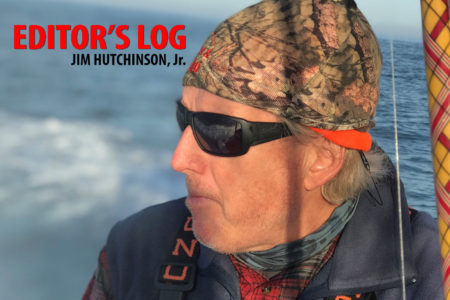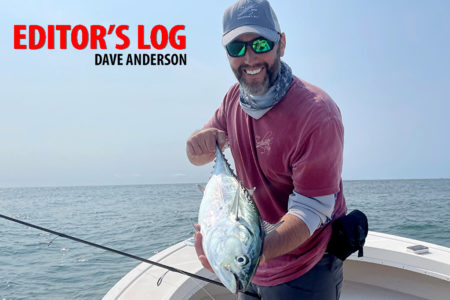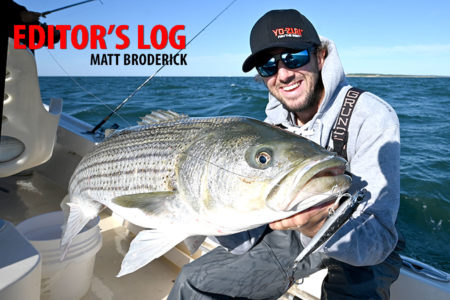Imagine a large apple orchard, where big, juicy apples ripen on trees throughout the summer; an abundance of fruit waiting to be plucked in the fall! Of course, some fruits need to be set aside for future growth, and the trees have to be continually monitored for health; that’s the way resources are managed for sustainability.
While anti-capitalism has become strangely popular of late, natural resources have always been defined as materials “that occur in nature and can be used for economic gain.” Imagine the farmer placing a locked gate across the road to maintain maximum abundance; what purpose would the orchard then serve if apple picking were prohibited? It’s the same with our nation’s fisheries law, the Magnuson Stevens Act. Established by Congress in 1976 to maximize U.S. coastal fisheries resources for economic stability, the law was written to provide all fishermen with a sustainable annual “yield” or extraction.
By definition, an abundant orchard where no apples are harvested is not a resource; it’s a pile of dying fruit. And as we’ve learned through the travesty of black sea bass in particular, what we’re left with is a marine sanctuary that greatly impacts other fisheries. You’d be hard-pressed to find any New Jersey angler who’s happy with the way fluke and sea bass resource is managed. When seasons are closed, anglers cannot target these species, even by purposeful catch and release since there’s mortality associated with any directed effort.
I’m all for abundant fisheries; there’s nothing like hitting a good patch of keepers, boxing up a three-fluke limit before 9 a.m. and then going off hunting that elusive, solitary weakfish along the sedges. But not having fluke season open until Memorial Day Weekend doesn’t provide much “opportunity” for folks in smaller boats who fish the back bays and rivers, and there’s certainly no “experience” when boats are tied to the slip.
Those pushing this “managing by abundance” scheme blog how they don’t like good fishermen, referring to themselves as “Average Joe” types who need more fish in the water to put together a catch. Strangely the most vocal bloggers are captains themselves who detest the “professional crowd” and “charter/party guys.” Fact is, the real Average Joe is a charter/party guy who may have limited means to fish without paying for a lift. I guess what the social medialites really hate most are the bitter fruits of other, more efficient captains’ success.
A party boat is just a bus; it’s mass transit for individuals to economically travel from Point A to Point B. Those individuals may eventually move from bus to Uber or limo, enjoying the luxury of a custom charter. We all strive to own our own transportation of course, and if things go well on the job front we might someday upgrade that old jalopy to a larger, sleeker model which can comfortably take us farther from home.
The current federal fisheries debate on Capitol Hill isn’t about fly and light tackle sportfishing for stripers, billfish or even largemouth, it’s about bottomfish like fluke, sea bass, and porgies. Fencing off that orchard in the name of fruitful abundance fails to recognize a simple fact – the opportunity to fish and the experience of fishing is tied directly to open seasons with sustainable access for harvest and consumption.
Maybe the Ocean Conservancy disciples and ideologues are too “foo foo” to bait their own hooks, or perhaps can’t get the limo driver to arrive at the farm before the crowds; but they’re purposely creating division by pointing their manicured fingers at the rest of us and crying “all he wants to do is kill fish, wahhhhh.” And how do you like them apples; if the season is closed and I’m not allowed to pick any fruit, then technically, semantically, I guess they’re right!


